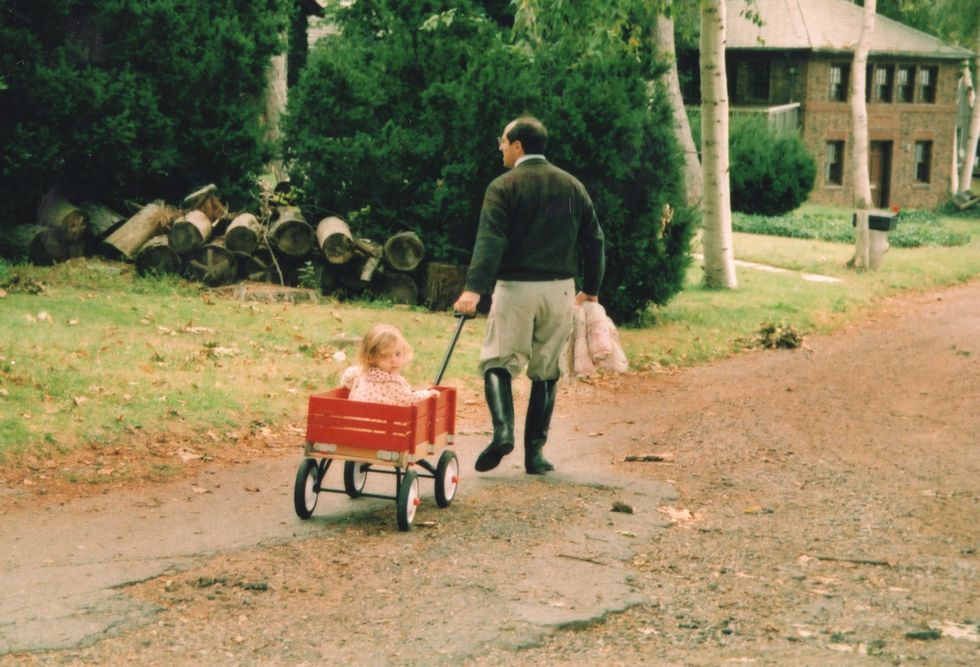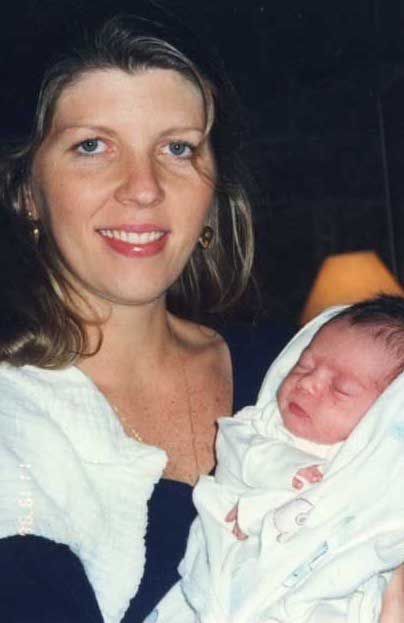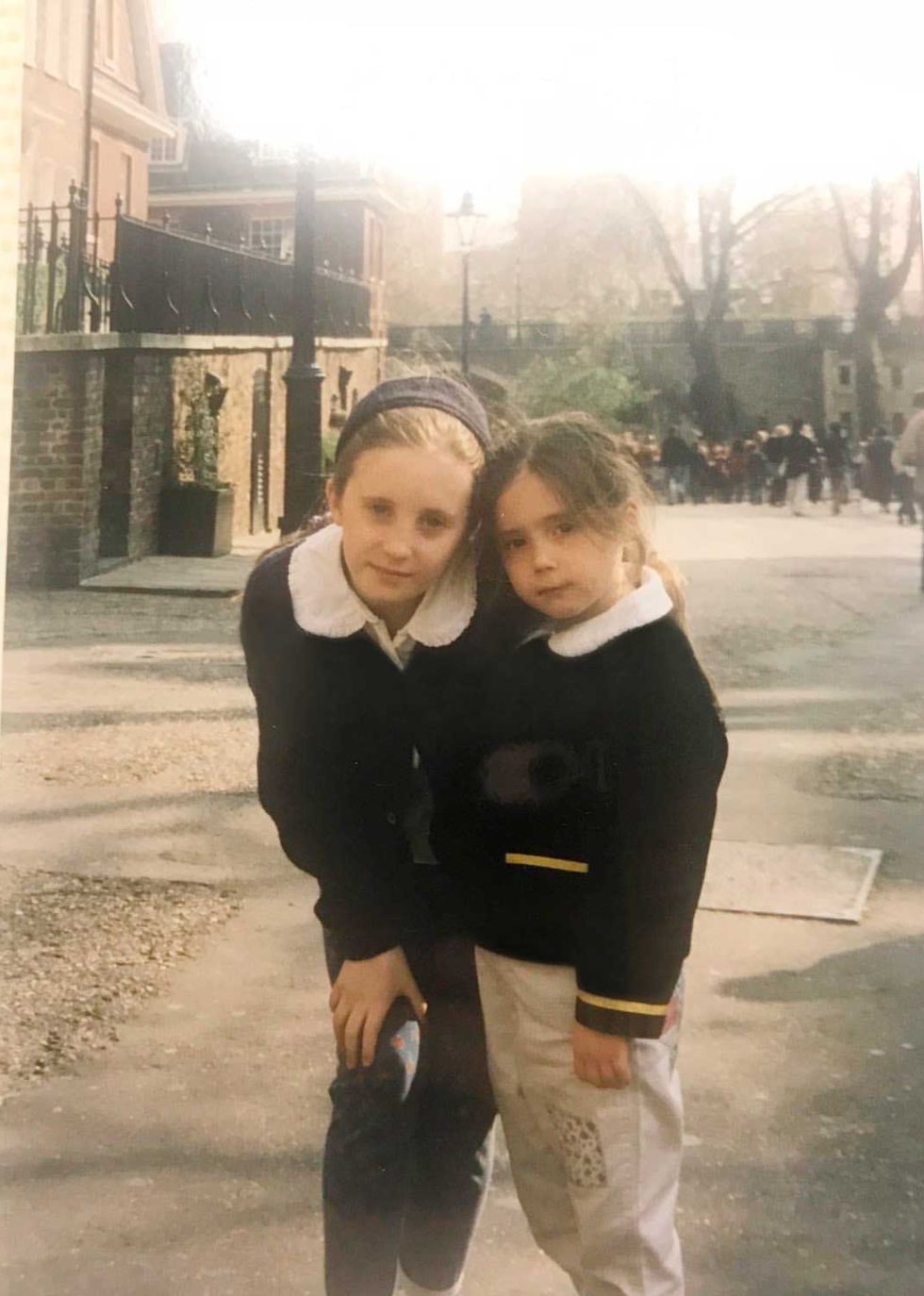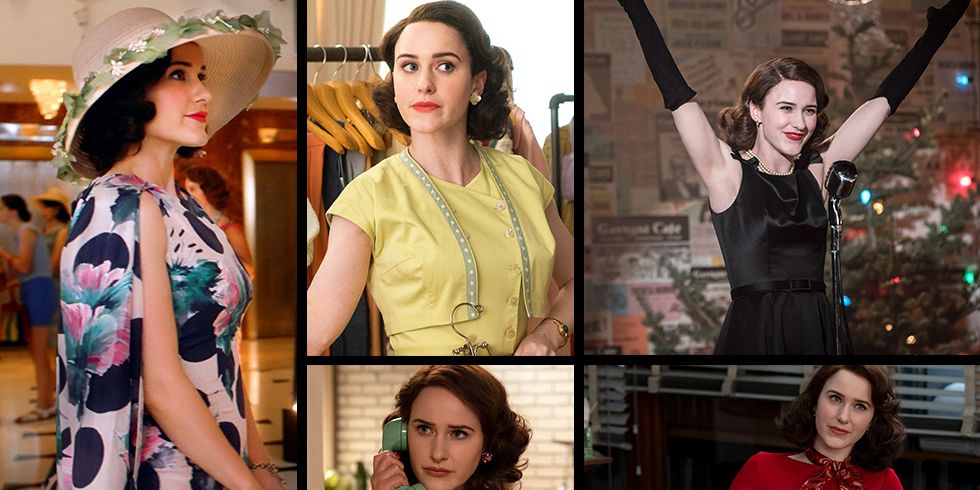The Tragedy of Two Gilded Heiresses
In the middle of the living room sat a swimming pool. It was not some small inflatable tub, but a massive cylinder, designed for the outdoors. Olivia Handler, 18, saw to its installation, deciding it would be the main attraction for a surprise party she was throwing for her 15-year-old sister, Emma, who would be spending the summer of 2012 back home after having completed her sophomore year at Interlochen Arts Academy, a boarding school in Michigan. A white sheet cake decorated with blue and pink roses sat on the kitchen island with the message, in inexpertly piped lettering, “Welcome From Jail Emma.”
Despite the party’s dramatic aquatic centerpiece, the real draws to the Handler house that night were the sisters themselves. Olivia’s wavy blonde hair and bright baby blues conjured a kind of milkmaid innocence, while Emma, with pin-straight brunette locks, resembled Wednesday Addams gone prep. While Emma would go on to become known in their corner of northwestern Long Island for her grand soirees, tonight’s party would be one for the books. “When I saw the cake, it sank in that I’d finally made it home,” Emma says. “It was like I was free.”
A spontaneous swim would mean sacrificing perfectly applied eyeliner and hot-ironed hair. Still, a drunken, indoor dip, free of parental supervision, was no doubt appealing to the adolescent partygoers. “Surreal” is how Emma describes the scene now. “People were jumping from the rafters into the pool.”
Perhaps even more surreal was the pool’s setting—the majestic five-bedroom Orchard House, part of a sprawling estate at the northern tip of Great Neck that some locals claim F. Scott Fitzgerald took inspiration from while writing The Great Gatsby. The property was 21 acres then, adjacent to Gatsby Lane, in an area where real estate sites today show that just one acre of land might set you back $2 million. The Pavilion, the home where Olivia and Emma Handler grew up, had a brick facade that curved to embrace Hewlett Point. Several magnificent balconied windows showcased unobstructed views of Long Island Sound.
Surpassing the Pavilion in showstopping elegance was the estate’s Main House, which belonged to the girls’ paternal grandmother, Marjorie Brickman Kern. The three-story bronzed stucco mansion, built in 1854, featured five hulking marble fireplaces, servants’ quarters, and a grand white staircase that coiled from the living area to the bedrooms. The walls of the Main House featured framed portraits of past guests—Eleanor Roosevelt, Woody Allen, Sarah Ferguson—who would have been able to enjoy views of Manhattan, City Island, and a Connecticut expanse unfurling at every turn.
Fitzgerald supposedly attended raucous parties at the Main House when it was occupied by Richard Church, a scion of one of the cofounders of Church & Dwight Co. (manufacturer of Arm & Hammer), in the 1920s. The other houses, including the Orchard House, were home to members of Olivia and Emma’s extended family for more than half a century, thanks to the vision of their paternal great-grandfather, Herman Brickman.
Among Long Island’s Gilded Age properties, the Point, as the entirety was informally known, was a rare jewel, encompassing a vineyard, tennis and squash courts, and views of Manhasset Bay. Never mind Olivia’s temporary party pool in the Orchard House—an Olympic-size beauty separated their grandmother’s mansion from their childhood home. In the mosaic of a reported one million marble tiles, you could easily picture Jay Gatsby’s last swim. And then there was the indoor lap pool on the first floor of the Pavilion, where the floating body found six years prior was, alas, not fiction.
Jennifer Eley-Handler was quietly lovely, with flaxen waves that formed a heart around her face. Her cornflower eyes matched her daughter Olivia’s in color, but were shaped more like Emma’s. The Great Neck native had been a child prodigy, a classically trained pianist who’d entered a Juilliard youth program at 13, and was, in adulthood, a principal in the Long Island Philharmonic. Jennifer had no trouble attracting an eligible bachelor like Frederick John Handler—sometimes called “F. John” or just “John”—a bespectacled writer and yacht builder–turned–lawyer who had been raised on the Point compound. After he and Jennifer were married, they settled into the Pavilion, but life on the estate would not prove easy.
A 1997 article in the New York Times reported that John and his mother, Marjorie, the designated managers of the property since shortly before the girls’ great-grandfather died in 1981, had been embroiled in a decades-long legal battle with Marjorie’s brother Richard and other family members over the estate’s management. John’s hope was for Emma and Olivia to one day start their own families on the compound, but the property taxes were high, even with rental income, and by the late 1990s, the estate was experiencing financial difficulties. Meanwhile, the familial friction continued. John and Jennifer’s large share of the Point estate had also strained their relationship with John’s older brother, Russell.
On a particularly sodden late spring morning in 2006, Emma begged off school for the day. The fourth grader was already performing level six classical cello, so Jennifer reasoned her “little petunia” could afford to miss class. Jennifer had been experiencing heart arrhythmia, a possible side effect of the chemotherapy treatments she had undergone for breast cancer. Still, she was an overachiever by nature. Olivia and Emma say their mother would swim 100 laps a day, alternating between battling the mechanical current in the family’s indoor pool and practicing piano until her fingers bled.
Emma and Jennifer had ventured on a stroll along the Point. When the weather began to turn, the pair headed home for a dip. Back at the house, they separated to change into bathing suits. Emma arrived in the pool room along with a neighbor’s child she’d been playing with to find her mother floating face down in the pool. Emma, nine years old at the time, ran over and lifted her mother’s head. “When you see someone like that, you just know,” Emma says. “It’s in their eyes. I screamed bloody murder and ran upstairs to call 911.”
Emma recalls reciting her address so quickly that the emergency operator had to ask her to repeat it a few times. The medical examiner’s report ruled Jennifer Eley-Handler accidentally drowned, but the details have been difficult for the sisters to accept. “It doesn’t make sense,” Olivia says. “It was also really depressing. My dad left the water in the pool. Nothing was cleaned or changed for years. It was like this room that we just didn’t go into—it was off-limits.”
As a child, Olivia had trouble sleeping due to premonitions that something bad would happen to her parents—she even started to self-harm, picking at her head and arms. After Jennifer’s death, family friend Adele Fuchsberg recalls Olivia slipping into high heels and carrying Jennifer’s pocketbook. It was as if Olivia was playacting her mother’s role, she says.
Now the sole caregiver of two young daughters, John Handler struggled to look after himself. After passing a kidney stone, he developed toxic sepsis and stayed in the hospital for six months.
During this same time, John’s brother Russell was having problems of his own. While on pre-conviction bail for assault charges, Russell violated a protective order prohibiting him from having contact with his wife, incurring further charges. In the summer of 2006, Russell was found guilty and sentenced to five months in county jail. Russell sued the law enforcement officials who arrested him, alleging that detectives on his case coerced him into making a plea, but the claim was dismissed by the court.
The following summer, an article appeared in the New York Times: “Amid Family’s Quarrels, A Home Worthy of Gatsby Begins to Crumble.” Russell had contacted reporter Bruce Lambert seeking coverage of the feud over the property. In the piece, Marjorie Brickman Kern, who was 81 at the time, said she sold her near–quarter share in the property to her son John unknowingly—and became aware of the fact while attempting to transfer money into a trust for Russell’s son. As Brickman Kern’s power of attorney, Russell argued his brother John owed their mother $1.7 million in gift taxes since he purchased her shares of the land for $500,000—well under the estimated $12 million market value. “I wish my brother well,” John responded in the Times. “I just don’t want to have anything to do with him and the madness that seems to surround him.”
Lambert, the Times reporter, told me his experience on the Handler estate revealed an “odd family dynamic.” Specifically, he remembers a little girl frequently pulling the pen from his hand while he took notes during his interview with her grandmother. He believes that little girl was Emma Handler. “I know this sounds crazy,” Emma tells me, “but I knew something was going to happen to [my father].”
Weeks before the story was published, John Handler had been released from the hospital. His toes and the tips of several fingers had been amputated, but he was alive. For Olivia and Emma Handler, who had been in the care of the family of one of Olivia’s friends for half a year, it was a fresh start. There was a party to celebrate his return home, and among the guests was Jennifer’s cousin, Pamela Johnson. John had made Johnson executor of his will almost a decade earlier, putting her in charge of the property and finances in the event both he and his wife died.
Out on the patio of the Pavilion, Johnson sat with her husband and the estate’s manager, Terry Mogil. Olivia’s ears perked when she heard her and her sister’s names in the context of the “best way to handle everything.” Concerned, Olivia ran to find her father. She remembers Johnson explaining that they were “just trying to figure out the school situation,” which upset John. “He was like, ‘These are my kids. They are not your children.’ He felt that the conversation should have involved him if they wanted to have it,” Olivia says.
Shortly following his return, John took his girls sailing around the sound. Alone with their father, Olivia and Emma let it be known that they did not want Johnson to be named their guardian. Pamela Johnson remembers John mentioning replacing her as executor while still in the hospital. “I know that I would have been supportive of any such proposal,” she says.
John rewrote his will in January of 2008, replacing Johnson as estate executor with a close friend and his lawyer. He named Liz and Ray Mathewson, estate tenants and good friends, as the girls’ guardians. Otherwise, much of the will remained the same: Emma and Olivia would come into their inheritance in three stages, between the ages of 23 and 30. While not stipulated in the will, John’s hope was that his daughters would continue living and raising their families on the estate. “He was determined to not sell the property or sell any of the houses,” says a neighbor and friend of John’s who requested to remain anonymous. “He said, and I quote, ‘Over my dead body will we sell this estate.’ ”
On the evening of March 5, 2008, John Handler left his law office in Great Neck for a dinner at the home of his tenants, the Mathewsons, in celebration of his 57th birthday. He picked up a bottle of wine before driving home to collect the girls. Emma and Olivia heard his car pull up around 7 P.M. Minutes later, Emma went outside and called out to her father, but he didn’t answer. She went to Olivia’s room, where her sister was hanging out with her friend Sophia Sarraf. The girls noticed that the car’s headlights were still on, and Olivia and Sophia went outside to take a closer look. John’s briefcase was on the car’s rear seat, partially outside of the door, but there was no John.
According to the police report and witness statements, a search party quickly mobilized among a few of the estate’s tenants. Olivia, running around in tears, had been ushered into the house along with Emma. Liz and Ray Mathewson joined with flashlights. Sophia, who had gone home for dinner, returned with her mother to help look. Emma and Olivia’s dog, Lucky, led the group to a grassy area beside the outdoor pool, according to a witness statement. Sophia’s mother, Joyce, told the police that she saw John Handler first. He was on his back with a large contusion around his left eye and a small laceration to the back of his head, according to the police report. The Mathewsons had called the local police not long after joining the search. After the detectives arrived, John Handler was taken to the hospital, where he was later pronounced dead.
According to the medical examiner’s autopsy report, the cause of John’s death was acute cardiorespiratory failure. He could not determine the manner of death, though he noted John’s fractured ribs and nose. It was possible that John, with his myriad health problems, had slipped and fallen. But then there was what looked like a footprint on the back of his shirt. The briefcase on the back seat of his car had contained over $3,000 in cash plus Swiss francs and American Express checks, but his wallet was missing—a detail the detectives have struggled to resolve.
“There was no evidence of foul play and no evidence this was a natural death. We followed the case as far as we could,” says Detective Robert Pescitelli, who has since retired. “If John had a knife in his back or a bullet in his head, it would be more clearly defined,” adds Detective James Cereghino, who has also retired. “I would love to have another shot at it.” Fifteen years later, the case remains “undetermined” at the Nassau County Police Department.
What to do about the newly orphaned sisters became even less conclusive: John died only two months after revising his will and hadn’t gotten around to signing it. John’s original will had named one of Jennifer’s cousins and his wife as the girls’ guardians, but they lived in Texas, and Emma and Olivia did not want to move, Johnson says, adding that since no other family member was able to assume the responsibility, the court appointed her as guardian. The Handler sisters remained in the Pavilion, and the Mathewsons moved in with them. Due to the mysterious circumstances of John’s death, the police advised Johnson to hire a round-the-clock bodyguard. Soon after, the girls relocated with the Mathewsons to an apartment in Manhattan.
After a few months in New York City, Johnson removed the sisters from the Mathewsons’ care and sent them to a performing arts summer camp in the Catskills, after which they spent a month at the Point, living with another couple in the Boathouse. Johnson eventually rented a home for the girls in Great Neck, where they lived with a nanny. Johnson lived in Washington, DC, but spent weekends and vacations with the girls. For a while, a preteen Emma attended a boarding school in Connecticut. Unhappy in Connecticut, Emma transferred to a middle school in Great Neck, and Johnson allowed both girls to return to the Point and stay in the Orchard House with a live-in housekeeper and nannies.
In spring of 2010, Johnson visited the sisters. On the way home from a doctor’s appointment, Emma learned that her sister had been sent to a wilderness program in Utah earlier that day. At dinner that evening, Johnson, her husband, estate manager Terry Mogil, and a neighbor informed Emma that she would be taken to a similar facility in a different state. According to Johnson, the residential therapeutic programs were recommended by the girls’ doctors. “They had suffered unimaginable losses,” Johnson says. “And, in their physicians’ views, needed more intensive support than could be provided in office visits.”
In the middle of the night, a couple arrived to pick up Emma. She slept nearly the whole car ride, waking up about 14 hours later in Georgia’s Blue Ridge mountains. (She remembers being offered allergy meds before the trip, which she later suspected had been Valium; Johnson and Mogil confirm her assumption, adding that Emma’s reaction to the news of Olivia’s departure was so extreme they needed to calm her down, and that the medication was administered at the advice of Emma’s doctor.) She would spend the next three months at an immersive outdoor therapeutic program, then known as Second Nature Blue Ridge.
Emma does not have fond memories of the experience. “We would shower once a week with stream water boiled on a fire we built. One time I had to shower in the hail with cold water. I cried. No cell phone, no contact. If you want to get out of there, good luck, because you can’t run away,” she says. “You’re in the middle of nowhere.”
The year the sisters spent separated brought more distressing news: Their family property was to be sold. Johnson, who was managing the ongoing costs associated with the property, believes “there was no other choice.” Her objective, she says, was to provide adequate income for Olivia and Emma. The entire Point estate was listed for $39.5 million in 2010, although, after years of neglect, the houses had fallen into disrepair.
As the estate languished on the market for 18 months, the Handler girls bounced from camps to boarding schools. In her sophomore year at Interlochen, Emma began dissociating, wandering the Michigan campus in the snow. Olivia, in her freshman year at Berklee College of Music, similarly fell into a deep depression. After one semester, she decided to leave college, occasionally staying at the estate that had so troubled her family. It was around this time when Emma’s infamous “Welcome home” blowout took place.
By this point, both sisters were worried Emma might be sent to another therapeutic program after her last semester at Interlochen. Tensions were high with the executor of their family’s estate, and Emma was eventually allowed to select a new guardian. Emma scheduled a meeting with family friend Adele Fuchsberg, who agreed to oversee her care. The same year, the Point found new owners, inadvertently granting Emma a way back to her childhood home. In the summer of 2013, 16-year-old Emma began renting the Orchard House.
Free for the first time, but under the watchful eye of a live-in housekeeper, neighbors, and friends, Emma opened the Point to one last generation of partygoers. At a Burger King about a half-hour drive away, teens would compare directions to the “Gatsby house,” arriving to tapped kegs, shirtless lacrosse players, and girls in feather boas dancing on tables. They were, Emma declares, some of the best times of her life.
Both sisters wound up following in their mother’s footsteps, pursuing careers in music. While staying at the Point, Emma played her mother’s Steinway, set up a makeshift studio, and began writing songs. After a stint in Miami, she went west to Los Angeles, where she adopted the pseudonym of “Emma Gatsby” and explored music inspired by the Jazz Age songs her father would play on the piano while the family danced.
Later, her sound evolved, and she incorporated her maternal grandmother’s maiden name into her stage persona to become “Jean Ryden,” though to her manager, and much of her California circle, she’s simply “enigmatic Emma.” Few are fully aware of her upbringing, or how, at 26, she can afford to live alone in a turreted, two-story townhouse in an affluent Los Angeles neighborhood.
Now known professionally as Olive Louise, Olivia lives in Queens with her fiancé. A gifted composer and singer-songwriter, Olivia has crafted a unique brand of alt-pop lyrically anchored in the Handlers’ misfortune. In one track, titled “Nothing’s the Same,” Olivia yearns to return to her childhood. “Bad Things,” her most-streamed single on Spotify, speaks to her morbid preteen premonitions. The accompanying video features a projector-like slideshow of old family photos. “Bad things are gonna happen here,” Olivia croons eerily. “You heard it here first.”
During one of Emma’s visits to New York a few years ago, she met Olivia at the Great Neck pizzeria the Handlers frequented when they were a happy, intact family. Seated at their usual table, listening to the same classical music that always played, they ordered the same thing they always did. But things weren’t the same, not really. Turns out it’s not so easy to repeat the past. Emma says she’ll always be reminded of what could have been, “but those feelings come and go.” Olivia agrees. “Time helps. But it used to be very hard for both of us to be together, alone. It’s like, ‘Where is our family?’ It feels like we are the last two.”
Hair by David Cruz and makeup by Gianpaolo Ceciliato, both at traceymattingly.com.
This article appears in the May 2023 issue of ELLE.
Beatrice Hazlehurst is a New Zealand-born journalist, presenter, and writer on the pulse of pop culture. She is the co-host of pop culture media podcast (UN)COVER GIRL, with bylines spanning Rolling Stone, i-D, New York Times, GQ, The Guardian, Playboy, Billboard, LA Times, PAPER, VICE, Vogue, and more. You can currently find her in Los Angeles, on the hunt for bread pudding and in the humble service of two cats, Penelope Cruz and Dmitri.
Check out our Latest News and Follow us at Facebook
Original Source
















